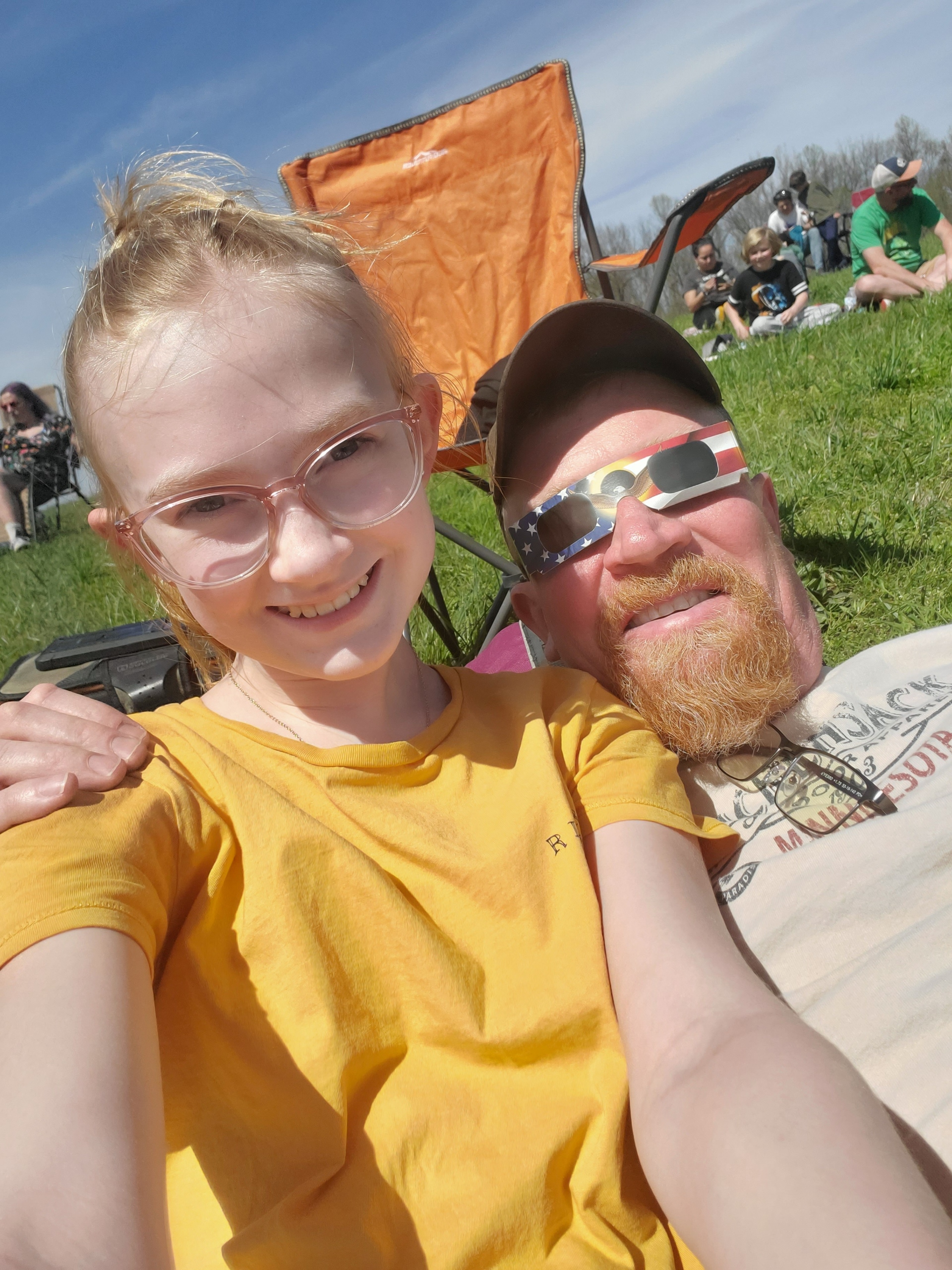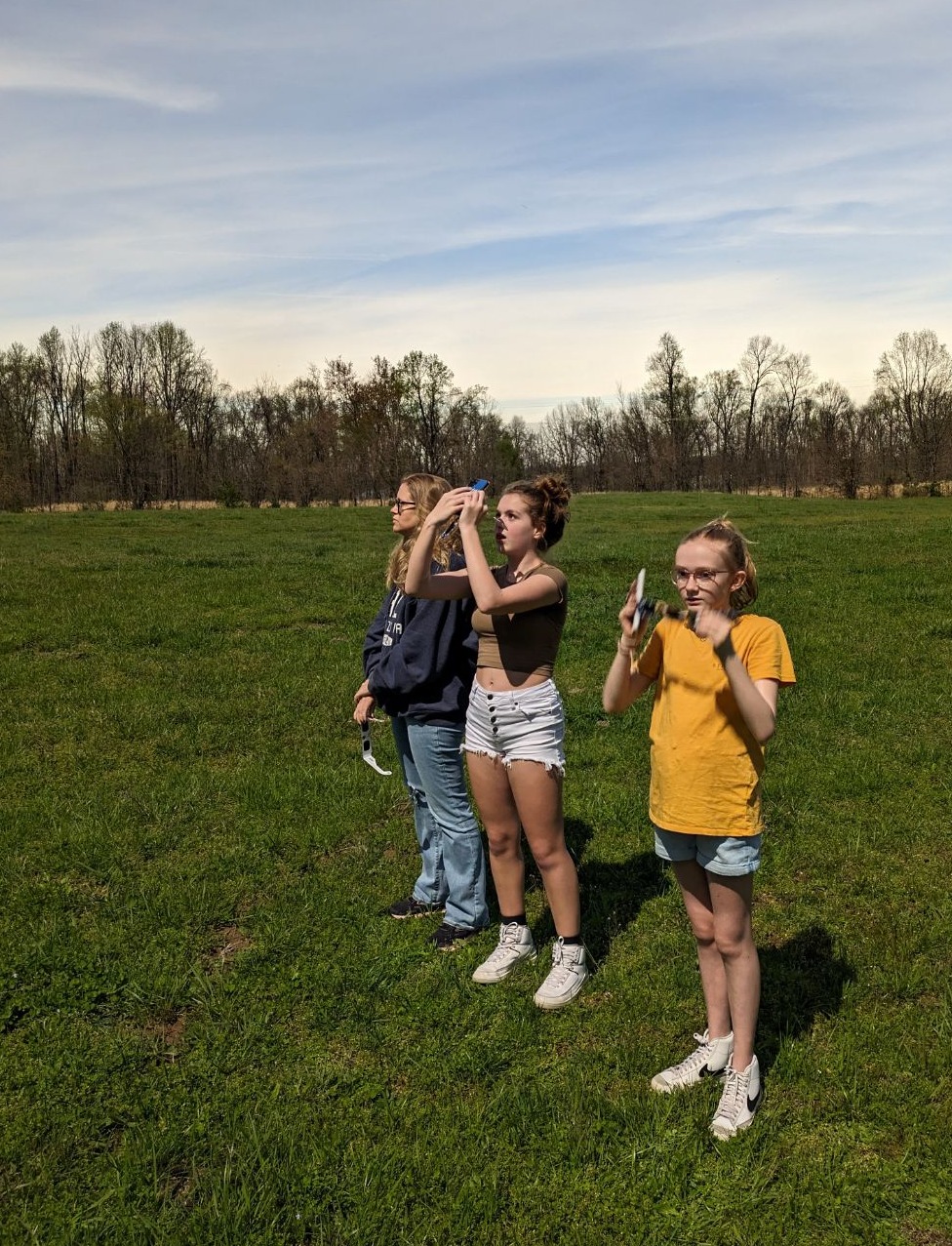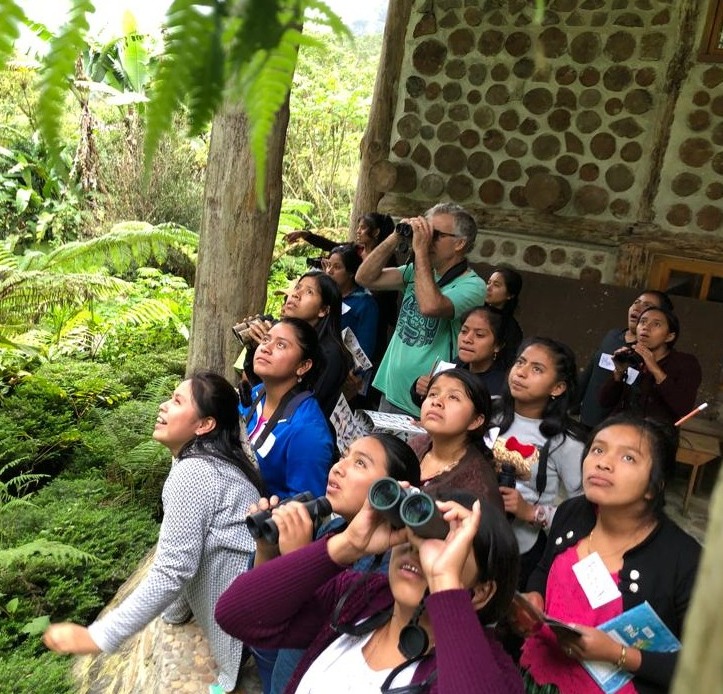
Apr 10, 2024
The Eclipse & LPGM WOW-ing Students
The total solar eclipse on April 8 took over the media for weeks leading up to it, and now in its shadow, it’s still a hot topic (puns intended).
Along with 19 other students and chaperones from our school district, my 12-year-old daughter was granted the opportunity to – along with my husband – travel from our home in Minneapolis to an Indiana farm field to view the celestial event.

The group journeyed more than 10 hours by bus, crossing through Wisconsin and Illinois to reach the enviable “path of totality.” The trip included meals, lodging for three nights, and entry to Discovery World in Milwaukee and the Museum of Science and Industry in Chicago. Of course, we all were contemplating, “What if it’s cloudy? What if it rains?”
Thankfully, that was not the case.
The experience, in Kaija’s words, was “AMAZING. THE MOST AWESOME THING I’VE EVER SEEN IN MY LIFE!” And my husband, as articulate as ever, texted, “Wow wow wow wow wow!!!!!!”
Kaija’s text then described it: “It felt like we were on a large circle of land in the middle of space and there was a bright light underneath us and a bright planet that we can look at. It felt like God had one of those light switches that can go from dark to lighter and lighter until bright!”
Back in Minneapolis, my 10-year-old daughter, Caris, and her fourth-grade class were out for recess at the height of the spectacle and were given the special glasses, but due to the cloudy skies, they couldn’t see anything.
My sister was teaching third graders in Wisconsin in an inside, windowless classroom. While it was a sunny day, her district’s policy wouldn’t allow students outside during the eclipse.
What does this have to do with LPGM?
Well, it’s about circumstances.
Some circumstances we can sometimes control (where we are located, what resources we have), and others we can’t (such as the weather or rules placed upon us by outside forces). And yet, children cannot control where they are born, their biological sex/caste/race, where they live, or where (or if) they can go to school. And not everyone has the same access to resources (from special glasses to an all-expenses-paid four-day field trip).
Kaija was granted the opportunity to travel to a great spot to see the eclipse. (Thanks, #Cargill!) She was given the resources to get there and to view the eclipse safely, AND the weather was perfect to experience 4 minutes of totality.
Caris had the resources of the glasses and the permission of her school, but her location - paired with the cloudy weather - made the resources and permission ineffective.
And my sister’s class was in a so-so place as far as the path of the eclipse but had the perfect weather, and yet policies set by those in power did not allow them to participate.

Our mission at LPGM is to provide access to quality education to students at the margins so that they have what they need to thrive and to live their best lives. We do this by breaking barriers to education, which may be financial, situational, cultural, or gender-based.
Our partners, who are residents in the regions we serve, understand the context of the issues and the complexity of the solutions.
We walk alongside them, supporting them as we strive to help these young people – especially women and girls – to have the best opportunities for education possible, despite their circumstances. And we can only do that with the support of friends like you.
Thank you for helping to turn the dial for these students, providing them with opportunities to be in the right place, at the right time, with the right resources and encouragement they need. You’re giving them the “WOW” experience all children deserve.

Q'eqchi' Maya girls in Guatemala use binolculars for the first time as part of our partner's WALC program. The cloud forest they live in is home to 300 species of birds.
Bethany Krepela joined LPGM as Development Director in November 2020. She's hoping to catch the next full solar eclipse in the U.S. in 2033.






